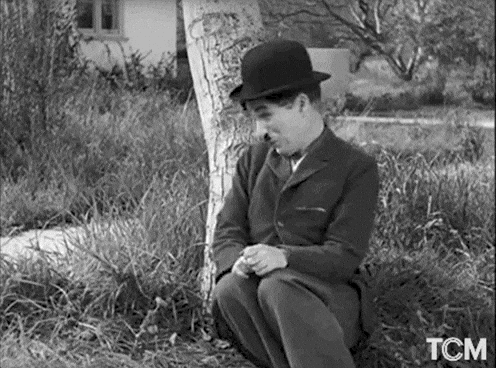- Screen Smarter
- Posts
- Last night I fell asleep watching Charlie Chaplin 🪄
Last night I fell asleep watching Charlie Chaplin 🪄
Last night I fell asleep watching Charlie Chaplin.

And I had the deepest sleep I've had in weeks.
I was in bed, wearing my blue light blocking glasses 😄, letting Charlie's silent comedy wash over me.
There was no dialogue to follow, no complex plot to analyze.
Just pure entertainment.
When I woke up 8 hours later, I felt fully recovered.
This got me thinking: A more "disciplined" version of me would've never approved of this approach.
Falling asleep to a screen? That goes against everything we're told about sleep hygiene.
But it worked. And has worked for me.
The Problem with Universal Sleep Advice
Here's what most sleep experts tell you: Create a wind-down routine.
Do calming activities 30 minutes to 2 hours before bed. Activate your parasympathetic nervous system to shift from active to inactive.
All true.
But here's what they don’t tell you enough:
What relaxes one person might actually stress another.
A 10-minute meditation might send one person into deep relaxation while making another's mind race with thoughts. The same soothing playlist could calm someone's nervous system or keep them mentally engaged and alert.
Same activity. Completely different nervous system responses.
Become Your Own Sleep Scientist
Here's what I've learned from years of sleep experimentation: The best wind-down is the one you actually want to do and do regularly.
Not the one you think you should do. Not the one that works for your friend or your favorite productivity guru.
The one that makes your body naturally say "ahh, this feels good. I am ready to sleep now."
For me, that's evolved to include:
Phone out of reach by 9:30 PM’ish
Blue light glasses after 10 PM
4-7-8 Breathing
Light, mindless entertainment (recently we’ve been watching Stick)
Reading (special shoutout to Terry Pratchett’s Discworld series)
What works for others might be completely different: guided meditation, hot tea rituals, or journaling.
It Doesn't Have to Be "Wellness-y"
The biggest misunderstanding about wind-down routines is that they need to be elaborate wellness rituals.
You don't need a 40-minute meditation session.
Some of the most effective wind-down activities can be “mundane”:
Washing dishes
Folding laundry
Taking a warm shower
Reading a book to your kid
The research backs this up: consistency matters more than the specific activity. Your brain craves predictable signals that it's time to power down.
Not All Screens Are Created Equal
The blanket advice "no screens before bed" misses important nuances:
Proximity matters: A TV across the room affects you differently than a phone inches from your face.
Content matters: Light, low-stakes content tends to be more calming than anything that triggers strong emotions like fear and urgency, or deep thinking.
Brightness and blue light vary: My blue light glasses make a huge difference for me, but some people don't notice any effect. A good rule of thumb is to keep your screen brightness as low as comfortably possible.
Your mileage will absolutely vary. I know people who fall asleep to true crime podcasts (would keep me up for sure 😄) and others who can't have any audio at all.
What I've Learned About Myself
My wind-down routine changes with my stress levels, work schedule, and even the seasons. What works in the summer doesn't always work in the winter (and vice versa).
Flexibility and self-awareness beat rigid rules every time.
The key is to start paying attention to what genuinely works for you, not what you think should work.
After all, how you sleep tonight will shape how you show up tomorrow!
See you next week,
George